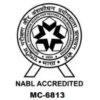Bone DEXA Scan (BMD)
What is a Bone DEXA Scan (BMD)?
A Bone DEXA scan, also known as Bone Mineral Density (BMD) testing, is a specialized type of X-ray that measures bone density. DEXA stands for "Dual-Energy X-ray Absorptiometry," a method used to determine the strength and density of your bones. This scan is the most accurate way to diagnose osteoporosis and assess the risk of fractures.
Why is a Bone DEXA Scan Important?
Bone density decreases as we age, increasing the risk of osteoporosis and fractures, particularly in postmenopausal women and older adults. A DEXA scan helps detect low bone density early, allowing for timely preventive measures and treatments. It is also useful for monitoring the effectiveness of osteoporosis treatments over time.
When is a Bone DEXA Scan Recommended?
Doctors typically recommend a DEXA scan if you:
- Are a postmenopausal woman over 50
- Have a family history of osteoporosis or bone fractures
- Are experiencing rapid bone loss or have had fractures from minor injuries
- Have been on long-term steroid therapy
- Suffer from conditions that can cause bone loss, such as rheumatoid arthritis, hyperthyroidism, or kidney disease
- Are undergoing treatment for osteoporosis and need to monitor progress
How is a Bone DEXA Scan Performed?
A Bone DEXA scan is a quick, non-invasive, and painless procedure. During the scan, you will lie on a table while a low-dose X-ray machine passes over your body, typically focusing on key areas like the spine, hip, or forearm. The entire test usually takes about 10-30 minutes, depending on the number of areas being scanned.
Understanding Your Bone DEXA Scan Results
The results of a Bone DEXA scan are presented as a T-score, which compares your bone density to the average for a healthy young adult:
- Normal: A T-score of -1.0 or higher indicates normal bone density.
- Osteopenia: A T-score between -1.0 and -2.5 suggests low bone density or osteopenia, a precursor to osteoporosis.
- Osteoporosis: A T-score of -2.5 or lower indicates osteoporosis, a condition where bones are weak and more prone to fractures.
How Can a Bone DEXA Scan Help You?
- Early Detection of Osteoporosis: The DEXA scan can detect low bone mass before a fracture occurs, allowing for early intervention.
- Risk Assessment: It helps assess the risk of bone fractures, which is especially important for older adults.
- Treatment Monitoring: If you are undergoing treatment for osteoporosis, a Bone DEXA scan can monitor the effectiveness of the therapy, ensuring your treatment plan is working.
- Prevention: For individuals with osteopenia, the scan can help guide lifestyle and dietary changes that may prevent the onset of osteoporosis.
Who Should Get a Bone DEXA Scan?
A Bone DEXA scan is essential for individuals at risk of bone density loss, including:
- Women over 65 or men over 70
- Individuals with a history of fractures
- Those with long-term exposure to medications that affect bone health, such as corticosteroids
- Patients with medical conditions that affect bone metabolism


